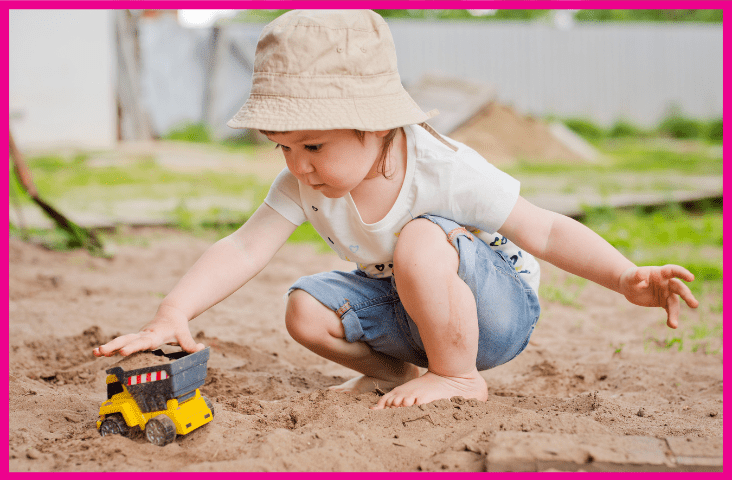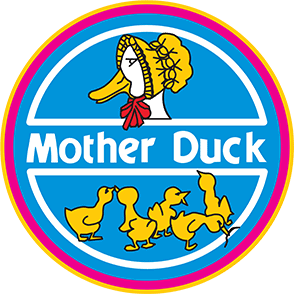
How to encourage your child to play independently
Play is essential to the development of any child, and play with adults is a huge part of that. Play is the way children communicate, learn new skills, build confidence and mastery, process emotions, and even regulate their nervous systems. Play is literally the work of children. And it builds confident, capable, resilient little people.
Playing with children also helps them to feel more connected to us and provides them with opportunities to process big emotions, heal emotional hurts and upsets, and even recover from traumatic experiences with us as their guide. And of course, playing with our children gives us a chance to really get to know them and create wonderful, happy, joyful memories together. So it is essential that we are playing with our children, at least some of the time.
But what about those times when we really don’t feel like it? When we’re exhausted. When we’re busy. When we need to work, or care for other children, or just need a rest? What about when the game they’re playing doesn’t interest us, or feels beyond our physical capabilities? What if we’re really struggling to muster any enthusiasm for their play and just need a break?
Do we need to accept every invitation to play that our child offers us? Absolutely not! It is not our job as parents to entertain our children 24/7 and it is unrealistic to expect that we will be enthusiastic and full of energy to play all the time.

In fact, independent play is an important skill for children to learn. There will always be times when we just cannot play with our children. There will be times when they will need to wait for us to finish what we’re doing. Or when we need to prioritise other things. This is real life. And so we want our children to learn how to play alone. To be comfortable with their own company and to welcome downtime as an opportunity to get creative.
But if your day is filled with a constant stream of, “Mum, will you play with me?” and you’re feeling like you can’t get anything done, then the idea of independent play might seem like a bit of a pipe dream right now.
But I promise you it’s not. Children can – and should – learn to play independently. But like anything, it’s part developmental process, part learned skill. Here’s how you can support them.
How to support your child with independent play:
1. Ensure their emotional cup is full
Play is the primary way children get their need for connection met. All requests to play are bids for connection. And when your child is feeling disconnected from you i.e. their emotional cup is empty, they will be even more likely to seek you out and ask you to play. They are trying to get their need met and fill that emotional cup back up. Only once that emotional cup is full, will children feel safe and secure enough to play independently. So if your child hasn’t had a lot of connection time with you recently, it’s time to prioritise some!
What might that look like?
Spend time connecting with your child before you return to your own activity. Set aside 10-20 minutes to play before you move away. Remove distractions and give your child your full, undivided attention. Be enthusiastic, and energetic and follow your child’s lead. Allow them to direct the play and go all in. Yes, I know you are tired, and busy, and you need to get things done. But spending this time playing up front, means your child will be less likely to make further demands of your time and you will be able to return to your activity with fewer interruptions.
Once your special play time is done, you can simply say to your child, “Ok, it’s time for you to have your own playtime now. I’ll be folding washing/ sitting at my desk/cooking dinner while you play.” Be sure to communicate to your child that you are confident in their ability to play without you and resist the urge to say things like, “You have to go and play on your own now,” which makes it sound like such a chore!

2. Remove stressors that are getting in the way
Play is a form of co-regulation. Engaging in play with our children meets their need for connection, reduces their stress and helps them feel safe and secure. So if your child is struggling to play independently it may be that they are looking for support from you to regulate their nervous system. If they are experiencing a stressor, then they will instinctively turn to you, and seek out your company in order to regulate themselves. This is actually a great sign that their nervous system is doing exactly what it is designed to do!
However, if you want your child to play independently, then they will need to be feeling safe and regulated both before and during play. This means you’ll need to ensure that they are not experiencing significant stressors that will cause them to feel unsafe, and seek you out for co-regulation.

What might that look like?
Mostly this looks like setting our children up for success and ensuring they have everything they need to play safely on their own.
-Ensure your child has access to open-ended toys
Toys that flash, buzz, make noises, or can be used in only one specific way tend to create stress by being both over and understimulating – sometimes even at the same time! The lights and sounds can overwhelm a sensitive nervous system. And the inability to get creative with the toy means your child may also feel understimulated. They may use it as intended once or twice, and then, fresh out od play options, they may abandon the toy and seek you out instead.
But when we provide children with open-ended toys that allow them to get creative and use their imaginations, they can continue to play with that same toy over and over again. They will remain engaged in play for longer and will be far more successful at playing independently.
– Ensure your child’s toys are age and stage appropriate
Ensure your child’s toys provide them with just the right amount of challenge. Too easy, and they will become bored and disengaged. Too hard, and they will become frustrated and overwhelmed and will need more active help from you to work through those stressful feelings. Look for toys that are suited to your child’s age as well as their stage of development, to ensure they remain engaged and can play without assistance from you.
– Ensure your child’s play space is safe and age-appropriate
If possible, try to create a ‘yes space’ for your child. This is a play space that your child can explore freely, without any fear that they will hurt themselves or break anything. A space with lots of rules, and items your child cannot interact with is a stressful space, and not conducive to creative play. Similarly, try to keep the space as clutter-free as possible. Too many toys can be overwhelming for children and cause them to move quickly from toy to toy, unable to make a choice about what to play with. Fewer toys often result in play that has more depth and lasts much longer.

– Remain close by
And finally, continue with your own activity, but try to remain close by as your child plays independently. Remember, you are their safe space and your presence nearby will provide some comfort and security. If your child can glance up during play and see your smiling face, they will feel more confident to continue playing.
3) Keep expectations realistic
The ability to play independently is partly developmental. So often I speak with parents who are expecting their children to play alone while they spend 30 minutes cooking dinner or participating in an hour-long work meeting. And this is just not realistic for your toddler or preschooler. It may not even be realistic for your school-aged child! An average toddler is able to pay attention for around 5-6 minutes, and your preschooler has an attention span of approximately 8-10 minutes. So expecting your child to play alone while you spend a few hours writing a report is just setting you both up to fail!

What might that look like?
Keep it short! 5 minutes of independent play may be all your child can realistically focus on right now – and wishing it was different, or trying to force more independence simply won’t work! Instead, try scheduling regular, short periods of independent play into your regular routine. Knowing what to expect will help your child accept the idea more readily and as their brain matures and they get used to the routine, they will spend longer and longer periods engaged in play, learning, creating, gaining confidence, and having fun!
Ultimately, learning to play independently takes time. It requires a level of developmental readiness, and a feeling of safety, security, and connection to you. If you focus on these three areas, you will set your child up for success and foster important, lifelong skills that will develop and flourish as your child does!
Sarah Conway is a child and adolescent psychologist, mother of 4, and founder of Mindful Little Minds. She has over 15 years of experience working in mental health with children, teenagers, and families. Sarah’s mission is to help parents move away from punitive parenting strategies and towards mindful, intentional parenting that builds emotional intelligence in children and parents alike. As a busy mum herself, she knows firsthand how difficult mindful parenting can be, particularly when it was never modeled by our own parents. That’s why she provides parents and children with simple, practical strategies and tools that help them learn to manage emotions – together. She believes that changing the way we parent will change the world.


